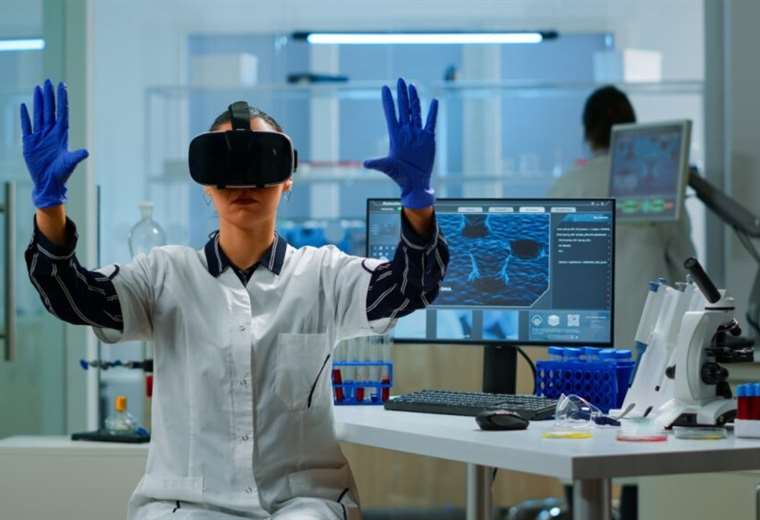April 27, 2023, 10:55 AM
April 27, 2023, 10:55 AM
Artificial Intelligence (AI) is quickly becoming an important tool in higher education that seeks to improve the effectiveness of learning and the student experience.
Education is changing. The way in which education is delivered and received has been energized by technology. It has applications of automated tutoring systems and can be extended to online learning platforms.
In Bolivia, digital tools are applied such as educational platforms (LMS), tutorials made with specific software, applications for educational use (canva, genially, kahoot, quizizz, desktop, etc.), simulators, among others.
Ariel Villarroel, member of the Teaching-Learning Office (JEA) of the Franz Tamayo University, Unifranz, mentions some technological advances thatat the moment, are being applied in education:
systems smart tutoring they use machine learning algorithms to adapt educational content to the needs of each student. These systems can provide personalized feedback and suggestions to improve student learning.
It is also used online learning platforms that use AI to provide personalized study material recommendations to students. They may also use algorithms to assess student performance and offer suggestions for improvement.
The educational chatbots They help students find answers to common questions, provide information about the school calendar, and offer personalized study tips.
From learning analytics uses data and machine learning techniques to analyze student data and provide useful information to educators. Teachers identify student behavior patterns and adapt their teaching accordingly.
Technology allows a automated evaluation with the resource of AI. Save time and resources. At the same time, it provides faster and more accurate feedback to students.
Sara Yoshino, from JEA Santa Cruz, considers that one of the main challenges of AI applied to education is overcome existing gaps in access to technologiesprioritizing Internet access followed by the availability of relevant equipment for the study, such as a computer or a Tablet.
“Another challenge arises: inequality. Although AI is proposed as a way to overcome inequalities in education through which it is possible to expand the coverage of the educational system, in contexts like ours it is complex and difficult due to the great differences mentioned”, he reflects.
Meanwhile, for Villarroel, AI is changing the educational landscape in many ways, and while it offers opportunities, it also poses some challenges:
The lack of transparency has become one of the biggest challenges of AI. How it works and how AI-based decisions are made in the classroom is often not fully understood.
AI-linked solutions lack the proper customization. An effective way to do it for each student adequately has yet to be found. The AI bases its decisions on historical data and generalizations, which may not be effective for an individual student.
An important challenge to be solved has to do with the threat of teacher replacement. As AI becomes more advanced, some fear that teachers could be replaced by technology.
without protection of student privacy. AI in education collects vast amounts of data about students. It is important that adequate security measures are put in place to protect student data.
About these challenges, there is one that marks the true technological inclusion in the classroom. overcome the digital divide will allow the consolidation of an accessible education system.

With technology resources, students can experiment with simulators during their learning
Yoshino argues that human skills such as empathy, sensitivity, tolerance or flexibility are teacher qualities that can never be replaced by AI.
Although artificial intelligence (AI) has many useful applications in education, there are some qualities a teacher possesses that cannot be replaced by the AI.
The ability to connect emotionally with students allows teachers to support students with emotional support, motivation and encouragement.
A second advantage of teachers allows them to tailor your teaching to individual needs of each student and not just based on historical data as AI does. Among the teacher’s own skills, the socioemotional sense that contributes to the relationship with the group. These are attitudes such as empathy, conflict resolution and effective communication.
Finally, the teacher has the skills to provide a safe learning environment and supportive, which is essential for students to feel comfortable expressing their ideas and asking questions. “Teachers will continue to be essential in the educational field despite the increase in AI in the classroom,” concludes Villarroel.

















